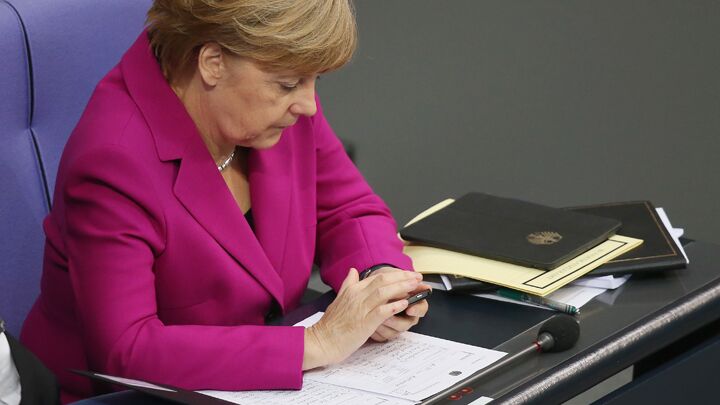
NSA Scandal Leads to Boom in Encryption Industry
German Chancellor Angela Merkel never thought twice about using her Nokia slide phone. That is until leaks about the United States possibly tapping her phone calls were released. Now Chancellor Merkel uses a “top-range BlackBerry outfitted with a custom-made security suite made by German company Secusmart,” the Associated Press reports.
Ms. Merkel is just one of thousands that have made the switch to encrypted technology since the Snowden saga began.
Silent Circle is an online security company that sells an encryption app that “allows users to talk and text in private.” Cofounder Jon Callas said the company saw a “huge increase” in Silent Circle subscriptions when the Snowden revelations came out. Germany is its biggest subscriber.
According to the AP, Silent Circle “began selling a secure smartphone” two weeks ago. Silent Circle said they plan to ship 10 million in the next three years. However, the first batch has already sold out.
“I want to send a personal thanks to the [National Security Agency], because we wouldn’t be having this discussion if that hadn’t happened,” Deutsche Telekom board member Reinhard Clemens said. “That was the best marketing campaign we’ve ever had.”
Last July, Pew Research Center conducted a poll that discovered the majority of Americans are more concerned about the government spying on them than potential terrorist attacks. The increased use of encrypted technology shows that people are seriously concerned about protecting their information.
Something as personal and intimate as sending an e-mail or making a phone call is not as secure as once thought. “With encryption, users are, in effect, putting their data in a more secure envelope to better protect it in transit,” the Wall Street Journal writes. Should consumers have to spend $2,750 to ensure that no one is listening in on their phone calls? Should a person sending personal information to a friend or relative have to doubt whether or not a third party is documenting that information? Privacy is becoming a luxury that few can afford. Read “Is the Government Reading You E-mail?” to see just how intrusive the government has become.
